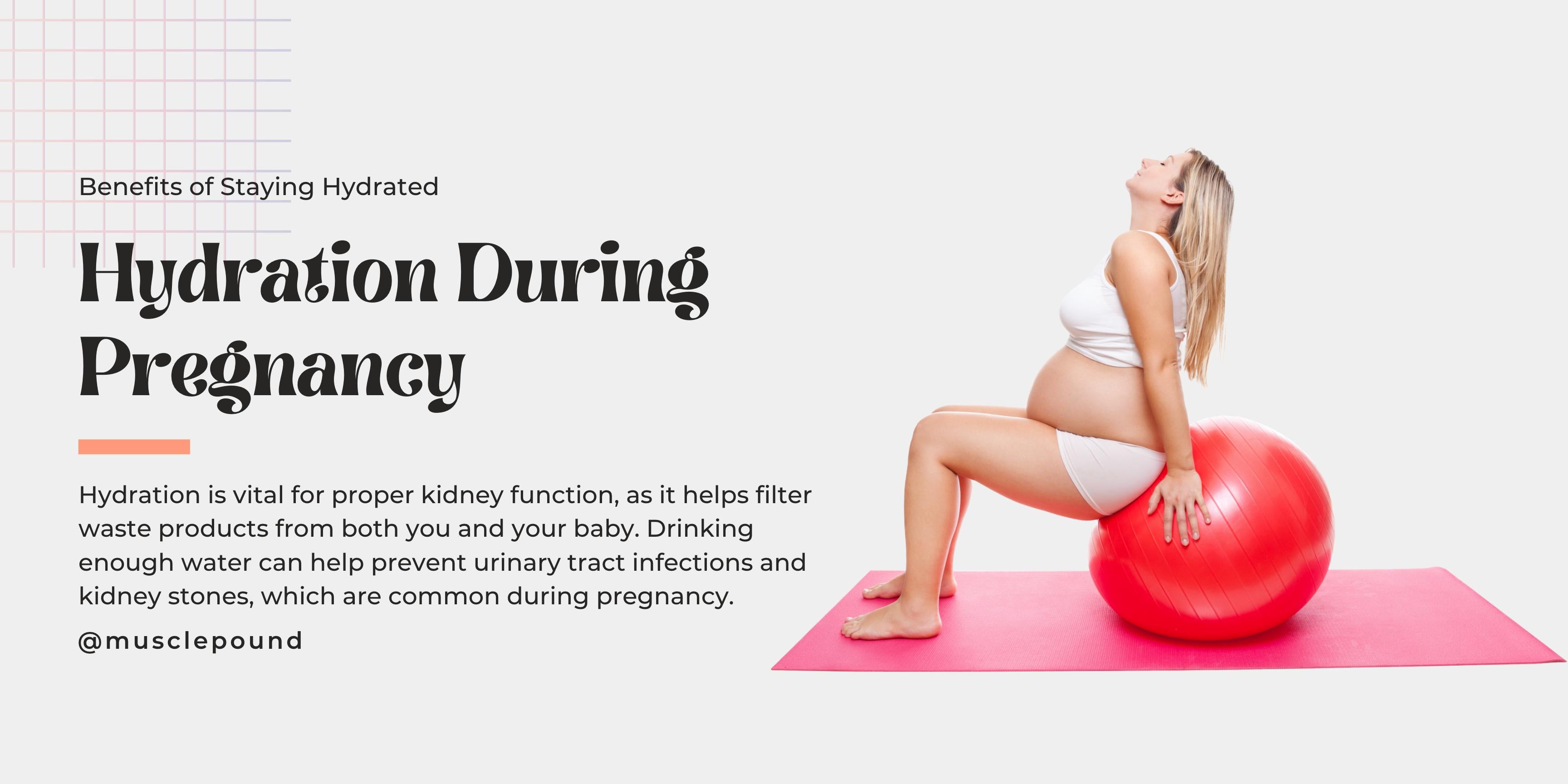
Hydration During Pregnancy
Hydration During Pregnancy
Importance of Hydration in Pregnancy
Benefits of Staying Hydrated
Maintaining Amniotic Fluid Levels
Staying hydrated is essential during pregnancy, as it helps maintain healthy amniotic fluid levels. Amniotic fluid is crucial for your baby's development, as it cushions and protects them while in the womb. A proper fluid balance also enables your baby to move freely, promoting muscle and bone growth.
Enhanced Kidney Function
Hydration is vital for proper kidney function, as it helps filter waste products from both you and your baby. Drinking enough water can help prevent urinary tract infections and kidney stones, which are common during pregnancy.
Alleviating Common Pregnancy Symptoms
Adequate hydration can help alleviate some common pregnancy symptoms, such as constipation, swelling, and fatigue. Drinking enough water can help soften stools, making them easier to pass and reducing the risk of hemorrhoids. Additionally, staying hydrated can help minimize swelling and promote healthy circulation.
How Much Water Should Pregnant Women Drink?
The Institute of Medicine recommends pregnant women consume around 10 cups (2.4 liters) of water per day. However, it's essential to consult your healthcare provider to determine the appropriate amount for your specific needs, as individual requirements may vary.
Signs of Dehydration in Pregnancy
Dehydration during pregnancy can be dangerous for both you and your baby. Some common signs of dehydration include dark yellow urine, dry mouth, dizziness, and headache. If you experience these symptoms or suspect dehydration, it's crucial to increase your water intake and consult your healthcare provider.
Tips for Staying Hydrated
Make Water Your Primary Beverage
To ensure proper hydration during pregnancy, make water your go-to beverage. Opt for water over sugary drinks, sodas, or caffeinated beverages, which can contribute to dehydration.
Utilize Flavor Infusers and Additions
If you struggle with drinking plain water, try adding natural flavors using fruit infusers or adding a splash of lemon or cucumber. These additions can make water more enjoyable and help you consume the necessary amounts.
Incorporate Water-Rich Foods
In addition to drinking water, consume water-rich foods like fruits and vegetables. Some excellent options include watermelon, strawberries, cucumbers, and lettuce.
Monitor Your Urine Color
Keep an eye on your urine color to gauge your hydration levels.
A pale yellow color indicates proper hydration, while dark yellow or amber suggests you may need to drink more water.
Set Reminders and Keep Track
To help you remember to drink water throughout the day, set reminders on your phone or use a hydration tracking app. You can also use a marked water bottle to measure your daily intake.
Precautions and Considerations
Avoid Overhydration
While hydration is essential, it's crucial not to overdo it. Drinking excessive amounts of water can lead to a condition called hyponatremia, which occurs when sodium levels in the blood become dangerously low. Stick to the recommended daily water intake and consult your healthcare provider if you're unsure.
Limit Caffeine and Alcohol Consumption
Caffeine and alcohol can both contribute to dehydration, so it's best to limit their consumption during pregnancy. If you do choose to consume caffeinated beverages, be sure to drink plenty of water to compensate for any potential fluid loss.
Conclusion
Staying hydrated during pregnancy is crucial for both the mother's and baby's health. Maintaining proper fluid levels can help support amniotic fluid, kidney function, and alleviate common pregnancy symptoms. By following the tips and precautions outlined in this article, you can ensure you stay adequately hydrated and support a healthy pregnancy.
FAQs
-
Why is hydration so important during pregnancy? Hydration is essential during pregnancy to maintain amniotic fluid levels, support proper kidney function, and alleviate common pregnancy symptoms like constipation, swelling, and fatigue.
-
How much water should I drink during pregnancy? The Institute of Medicine recommends pregnant women consume around 10 cups (2.4 liters) of water per day. However, individual requirements may vary, so consult your healthcare provider for personalized guidance.
-
What are the signs of dehydration during pregnancy? Signs of dehydration in pregnancy include dark yellow urine, dry mouth, dizziness, and headache. If you suspect dehydration, increase your water intake and consult your healthcare provider.
-
How can I make water more enjoyable to drink? Try using a fruit infuser, adding a splash of lemon, or incorporating cucumber slices to add natural flavor to your water.
-
Is it possible to drink too much water during pregnancy? Yes, overhydration can lead to a condition called hyponatremia, which occurs when sodium levels in the blood become dangerously low. Stick to the recommended daily water intake and consult your healthcare provider if you're unsure.



Leave a comment
This site is protected by hCaptcha and the hCaptcha Privacy Policy and Terms of Service apply.